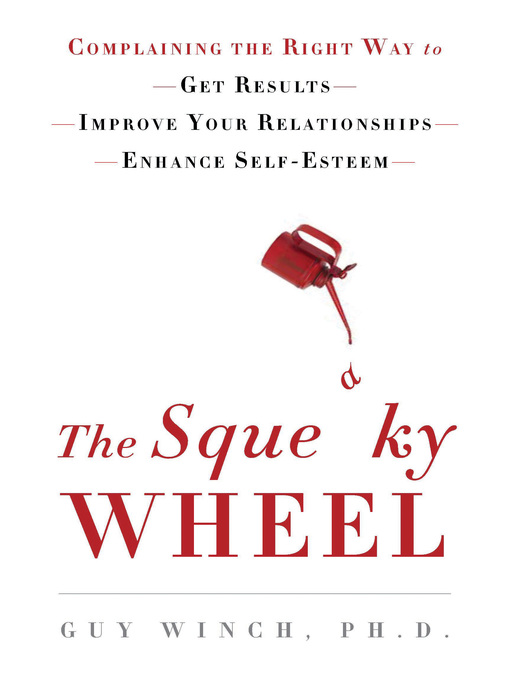Although life was physically more difficult in the days of the horse and carriage, we complained much less back then, and when we did, our complaints were more likely to get results. Today we complain about everything—yet do so with remarkable ineffectiveness. Most of us grumble, vent, and kvetch, neither expecting nor getting meaningful resolutions. Wasting prodigious amounts of time and energy on unproductive complaints can take an emotional and psychological toll on our moods and well-being. We desperately need to relearn the art of complaining effectively. Psychotherapist Guy Winch offers practical and psychologically grounded advice on how to determine what to complain about and what to let slide. He demonstrates how to convey our complaints in ways that encourage cooperation and increase the likelihood of getting resolutions to our dissatisfactions. The principles he spells out apply whether we're dealing with a rude store clerk, a bureaucrat, a coworker, our teenager, or a spouse or partner who's driving us crazy. Complaining constructively can be extremely empowering and it can significantly strengthen our personal, familial, and work relationships. Applying our new-found complaining skills to customer service representatives, corporate leaders, and elected officials increases the odds that our comments will be taken seriously. If we all complained more effectively, squeaky wheels could change our own lives as well as the world for the better. How to complain effectively to get the results you want. Guy Winch, Ph.D., received a doctorate in clinical psychology from New York University, completed a postdoctoral fellowship in family and couple therapy, and has been using complaints as a therapeutic tool in his psychotherapy practice for more than a decade. He also dabbles in stand-up comedy. This is his first book.
- New eBook additions
- Your next great read
- Comida-Cultura
- Celebrating the Art of Coffee
- The chocolate collection
- Libros en Español
- Juvenile Read-Alongs
- A Collection of Poetry
- Black History Month
- A Gastronomy Extravaganza!
- Yoga for Health - International Day of Yoga
- Beach Reads
- Remember WWI Book Club
- See all
- New audiobook additions
- Most popular
- Always Available Audiobooks
- Try something different
- Try Sci-Fi
- Read by Neil Patrick Harris
- Read by Jim Dale
- Audiolibros en español
- Mystery
- Professional Book Nerds - Podcasts
- See all
- SAPL's Favorite Magazines
- Popular Magazines
- Just Added
- Business & Finance
- Cars & Motorcycles
- Celebrity
- Crafts & Hobbies
- Español - Revistas
- Fashion
- Food & Wine
- Health & Fitness
- Home & Garden
- Kids & Teens
- See all


